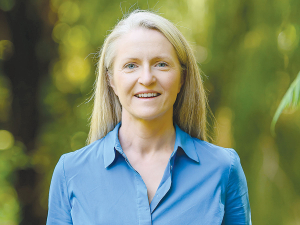The Environmental Protection Authority (EPA) is bolstering its frontline applications teams in a bid to reduce the timeframe for new product applications, but agri chemical producers say that it isn't good enough.
The EPA says that apart from hiring more staff, it is creating a prioritisation framework for the queue and developing new group standards for low-risk hazardous substances.
EPA general manager hazardous substances and new organisms, Dr Chris Hill, says the EPA appreciates the industry's concerns about delays for agrichemical applications.
"Through careful reprioritisation of our funding, we are now in a position to recruit additional frontline staff for a new team," says Hill.
"And once our full raft of improvements are complete, we will see an increase in applications being processed."
It is also working witht the Ministry for the Environment on amendments to the HSNO Act and improving communication and transparency with applicants and stakeholders.
Hill says changes made previously, such as the hiring of additional applications staff in recent years and the introduction of the international regulator rapid assessment pathway, were now starting to have an impact.
"For the first time in more than four years, we are deciding a similar number of applications to new applications that are lodged. In the seven months of this financial year there have been 36 release applications lodged and 34 decided. Of these, 32 were rapid or low-risk assessments and two were higher-tier risk assessments.
"This is in addition to sustained performance in processing containment applications, which are often for agrichemical field trials, with 25 lodged and 25 decided this year."
But Animal and Plant Health NZ says that while the EPA's intent to recruit more staff to process new agricultural and horticultural product applications, but says its members believe that more fundamental action is required.
"The backlog of approvals and lengthy timeframes for new product applications are disadvantaging our farmers and growers," says Animal and Plant Health NZ chief executive Liz Shackleton.
"We acknowledge and appreciate EPA's efforts to recruit, while noting the most complex applications in the queue (Category C) rely on highly specialist eco/toxicologist resource to process them, and these specialists are few and in high demand globally," says Shackleton.
"Members' reservations are that it will take significant time to see real impact. This is especially true for products that have already been sitting in the queue for years after applications have been lodged and then reported as formally received. Deciding a similar number of applications to new applications lodged, while positive, does not make headway with the backlog, so more is needed.
"This all points to the importance of the Ministry of Regulation's independent review of the whole process, the legislation, the targets and reporting behind it.
"A dozen primary sector and business leaders have called for strengthened governance, accountability and legislative settings to ensure risk balance and predictable timeframes.
"The sector sees the need for a more balanced risk mindset, where the current precautionary 'say no' approach is balanced with saying 'yes' to innovation that supports growth and improves sustainability and trade outcomes."










